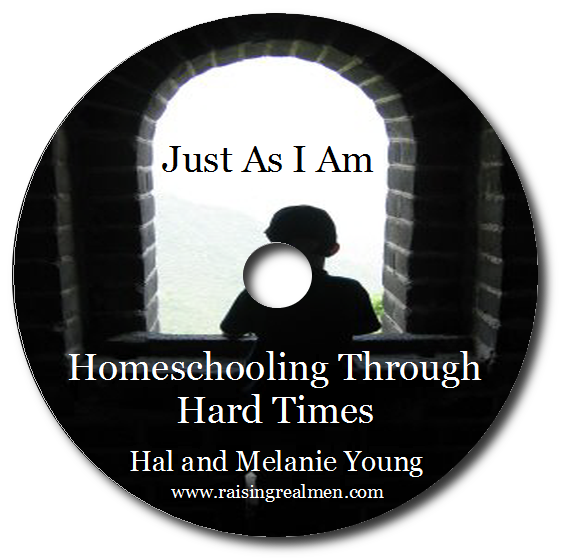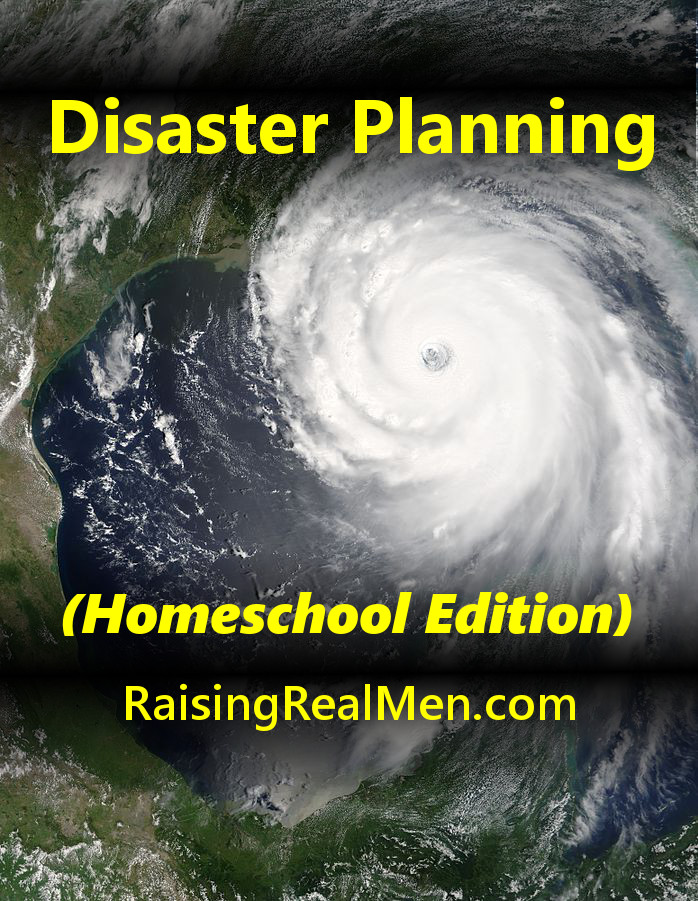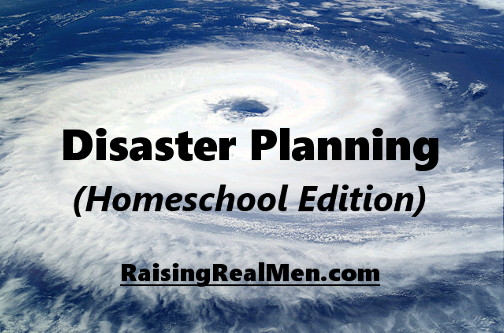Disaster Planning (Homeschool Edition)
When disaster strikes, groups like the American Red Cross, Southern Baptist Disaster Relief, and Mennonite Disaster Service do a tremendous job getting people shelter, clothing, and safe food and water. But when the yellow buses start to roll, homeschoolers have a different problem–one we need to solve ourselves!
When Hurricane Floyd destroyed or damaged nearly 80,000 homes in eastern North Carolina, you bet homeschoolers were affected. Our state homeschool organization and a support group leader in the state capital were able to organize a program that replaced educational supplies and curriculum for hundreds of families in the flood zone. In the process, we learned some key pointers from their experience:
- Disasters can happen to anyone. It doesn’t have to be an earthquake or hurricane. We know homeschooling families who’ve had to deal with house fires, chemotherapy, a baby in ICU, relocations, foreclosure, or even the death of a parent. We’ve had some of these ourselves! If you have a plan to deal with disruptions, you can adapt it to many kinds of emergency.
- Include your home school in your emergency plans. When we lived in Florida, we had very definite “bug out” plans. Whatever plans you have in the event of fire, flood, evacuation, or the like, you need to include your home school. If an emergency disrupts things for more than a couple of days, you’ll need to do something to continue school in the midst of it. Your kids will be under enough stress already, and dropping them off at the school bus stop – “Mom’s very sick, so here’s an entirely new school culture for you to learn” – is not likely to make things easier for anybody. Think about how you’ll keep going at least for a while.
- Be sure your records are safe. Whatever your law requires, you will want to keep your own records safe and secure. We use Dropbox, but Google Drive or any other cloud storage works as well. This is critically important for older students – you really don’t want to have to reconstruct a high school transcript from memory — or for special needs students who may have IEPs, for instance. Physical copies might be kept in an inexpensive fireproof safe – a good thing to have, anyway.
- Don’t forget your own documents. We’ve met families who moved to a new state after a disaster, and had to move their home school to a new legal situation. Keep a copy of your high school or college diploma, along with anything like a marriage certificate, adoption papers, or passport, in case you need to prove your credibility somewhere.
- Keep at least a basic school plan. When we had to spend weeks in ICU with a very sick baby, our mothers were able to keep homeschooling going because we had an outline to give them. It doesn’t have to be super-detailed, but at least have a list of which child is working in which book; all but the youngest should be able to “Do the next lesson” if someone reminds them!
- Remember supplies are easy to replace but curriculum isn’t. If your home is flooded out, pencils and calculators can be bought down the street – but the textbooks can’t. If you have to leave, take the hard-to-find and expensive books first. Remember the public library has lots of the literary works, too – rescue the teacher’s manual, not the copy of Wuthering Heights!
(continued …)
- Stay in touch! After Floyd, we had a hard time locating some families to offer help–their homes were wrecked, their mail was returned “Undeliverable” and we had no way to trace them! Take a moment to reach out to your local support group and your state homeschool association – let people know where you’ve gone, and how they can pray for you.
- Embrace God’s plan and timing. We’ve had a lot of ups and down in our family life, including cancer, high-risk pregnancy, hospitalization, job loss, and more – and by God’s grace, we were able to homeschool through them all! What we’ve learned along the way is that God truly is a loving father who cares for His children (1 Peter 5:6-7), and that all things – even disasters – truly do work together for good to those who love God and are the called according to His purpose. (Romans 8:28)He proved Himself trustworthy, and that makes a difference in how we receive the disruptions big and small.
Hey friends,
As Hurricane Irma seems to be threatening much of the South, we know many of you may be making plans!
We have a special workshop, “Homeschooling Through Hard Times,” that we’d like to offer you for FREE. The recording is normally $5 at conferences, but we want our subscribers to have it for no charge:

GET INSTANT ACCESS
to Homeschooling Through Hard Times now!
This workshop walks you through how to prepare for disasters and trials, homeschool through them, and recover as a family. Become an email subscriber to download. Current subscribers can enter their email below to download and won't be added twice!
Read Seven Life-Saving Hurricane Rules and get our Family Hurricane Checklist here!

In Christ, Hal & Melanie
Photo Credits:
Top, Cyclone Catarina from the ISS on March 26 2004, NASA/Johnson Space Center
Bottom, “Hurricane Katrina August 28 2005 NASA”, Jeff Schmaltz, MODIS Rapid Response Team, NASA/GSFC

